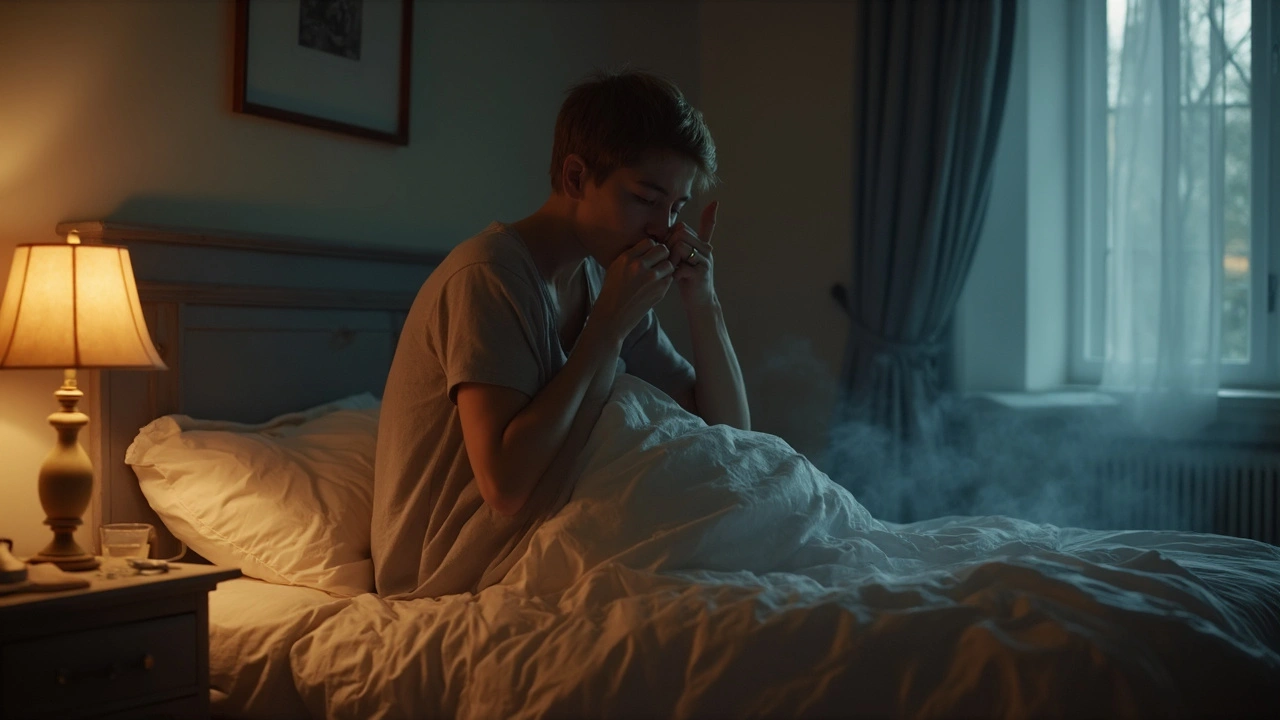Nighttime Overheating: What’s Making You Sweat?
If you’re waking up drenched in sweat or feeling like a furnace while trying to sleep, you’re not alone. Nighttime overheating can mess with your rest, mood, and even your health. Below we’ll break down the most common reasons it happens, easy ways to cool off, and signs that you should talk to a doctor.
Top Triggers You Might Not Expect
First, think about what’s around you when you hit the pillow. A heavy blanket, a warm room, or even your night‑time snack can raise your core temperature. Hormonal shifts—especially during menopause—are a big culprit for hot flashes that strike after dark. Stress also plays a role; cortisol spikes keep your body in high gear and can trigger heat waves at night.
Medications matter too. Some antidepressants, blood pressure pills, and steroids list “night sweats” as a side effect. If you’ve started a new prescription recently, check the label or ask your pharmacist whether overheating is on the list.
Quick Fixes to Cool Down Your Bedtime
Start with the bedroom itself. Keep the thermostat around 65‑68°F (18‑20°C) and use a fan for gentle airflow. Breathable sheets made of cotton or linen let heat escape, while synthetic fabrics trap it.
Hydration helps your body regulate temperature. Sip a glass of cool water before bed, but avoid large amounts right before you lie down—too much liquid can wake you up for bathroom trips.
If stress is the trigger, try a short relaxation routine: deep breathing, gentle stretching, or a quick meditation app session can lower cortisol levels and make it easier to stay cool.
When hormones are the cause, lifestyle tweaks like regular exercise, balanced meals, and limiting caffeine or alcohol at night often reduce the intensity of hot flashes. Some people find relief with over‑the‑counter options such as black cohosh or soy isoflavones, but it’s best to chat with a healthcare professional before adding supplements.
For medication‑related overheating, never stop a drug on your own. Talk to the prescribing doctor about dosage adjustments or possible alternatives that don’t raise body temperature.
When to Call the Doctor
If nighttime overheating comes with unexplained weight loss, fever, persistent coughing, or night sweats that soak through clothing, it could signal an infection, thyroid issue, or even a more serious condition like lymphoma. In those cases, schedule a visit promptly.
Also, if you notice the problem getting worse over weeks despite trying the tips above, let a medical professional evaluate your hormones and overall health. Simple blood tests can pinpoint whether a hormone imbalance is at play.
Bottom line: Nighttime overheating often has an easy fix—adjust your environment, watch what you eat and drink, manage stress, and review any meds you’re on. If the heat persists or comes with other symptoms, get it checked out. A good night’s sleep is within reach when you tackle the cause head‑on.

Asthma and Night Sweats: Why Sleeping Gets Hot and What to Do About It
Ever wondered why so many people with asthma wake up drenched in sweat? This article unpacks the strange link between asthma and nighttime overheating, digging into the real science behind those sweaty sheets. You’ll learn how asthma can mess with your sleep, how to recognize the subtle red flags, and what you can do to stay cooler and rest better. Real-life examples and clear tips make this a must-read for anyone tired of tossing and turning every night. Sleep, science, and simple solutions—all covered here without the usual fluff.
read more




